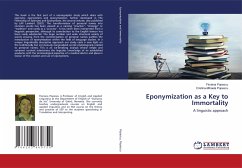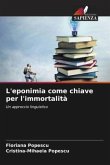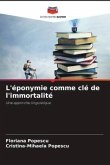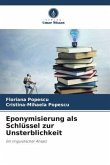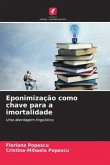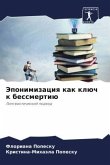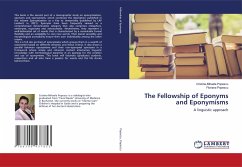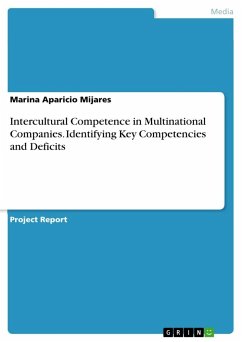This book is the first part of a monographic study which deals with eponyms, eponymisms and eponymization, further developed in The Fellowship of Eponyms and Eponymisms, the second volume, also published by LAP Lambert (2021). The transformation of personal names into common words has been viewed as a naming "practice", "strategy" or "tradition" and rarely as a "process". It has never been interpreted from a linguistic perspective, although its contribution to the English lexicon has been really substantial. The large number and wide structural variety of words ensuing from the commonization of personal names justifies the introduction of eponymization within the field of language studies. In a unique linguistically descriptive approach our study casts a new light on the traditionally but erroneously marginalized words etymologically related to personal names. This is an ice-breaking analysis whose simple and coherent content intertwines the linguistic knowledge of an establishedacademic with the terminological expertise of a medical doctor and pleas in favour of the creation and use of eponymisms.

